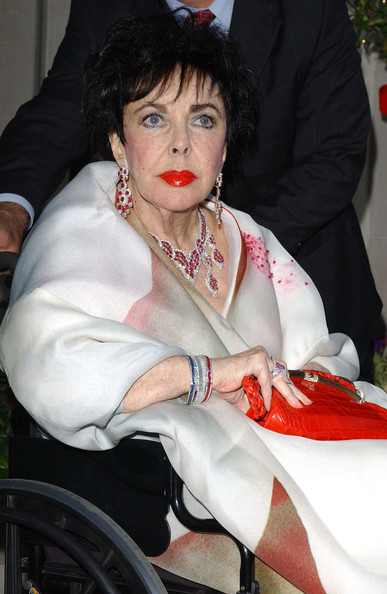Mother knew best
By Joel David
One of the first things that elderly netizens remarked when news of Lily Monteverde’s death broke out last August 4 was “how fittingly dramatic,” or variations thereof.
Her husband, Leonardo “Remy” Monteverde, had died barely a week earlier. Even the later qualification that “Mother” Lily was also in serious intensive-care condition when it happened and therefore may not have known that she was already a widow – this did not deter old-timers who remembered her as founder and long-term manager of Regal Films (later Regal Entertainment), the most successful production outfit in Philippine film history.
By the time of her death, Mother Lily had attained a measure of respectability that she seemingly did not hanker for during the heyday of Regal Films. This was due to her expansion into hotel ownership and management, showcased by the dankly massive Imperial Palace Suites at the juncture of Tomas Morato and Timog avenues in Quezon City, as well as her persistence in maintaining two film franchises. The first of these was the middlebrow Mano Po Chinoy melodramas, comprising seven theatrical releases (eight if we include the queer-comic variation Manay Po, more if we pile on two TV series) all produced during the current millennium. The second, more historically significant contribution was the omnibus Shake, Rattle & Roll horror series, 17 as of last count including a single-installment special, a number of which are worth some attention and the most recent of which came out last year.
The first SR&R film came out in 1984, featuring directors and stars associated with Regal Films (including Ishmael Bernal’s notable “Pridyider”) – except that … it wasn’t Regal-produced. The massive success of the formula induced the producers to unwisely invest in productions for censorship-exempt screenings at the Manila Film Center, then already confronting audience fatigue and backlash from the oppositionist Catholic Church, as represented by Jaime Cardinal Sin. Regal Films followed closely on the heels of relative newcomer Viva Films, countering Celso Ad. Castillo’s full-female-nudity in Isla (1985) with a film directed by Peque Gallaga, the Experimental Cinema of the Philippines’s breakout talent; his Scorpio Nights (remade in Korea by Park Jae-ho in 2001 as Summertime) was the first studio-produced Philippine film that contained an actual meat shot, courtesy of lead actor Orestes Ojeda.


Mother Lily of course had to endure a whole slew of scolding, initially from the moralistic elements of the Marcos Sr. dictatorship, until its orientation shifted to a libertarian policy, motivated first by its eagerness to stage and maintain the Manila International Film Festival (A-rated by FIAPF, a filmfest-ranking agency) and, later, by its determination to present itself as a culturally enlightened political force after the global outcry over the assassination of Senator Benigno S. Aquino Jr. during his return from US exile. The final censors chief appointed by the regime, in fact, contested the authority of the ECP and announced that she intended to ban Chinese and clergy from film-production activity and from appearing onscreen. Mother Lily’s production of Bernal’s Manila by Night, forbidden from competing in the Berlin International Film Festival during the early 1980s and released in censored form as the retitled City after Dark, was similarly restored and screened at the MFC.
Not surprisingly, stories swirled around her, a few of which sounded fantastic (like the Chinese- and clergy-hating censors chief) but were still confirmable. Who would believe today, for example, that Imelda once actually advocated for eliminating censorship and instituting divorce? The swing in her formerly pious persona could be easily tracked to her locking horns with Cardinal Sin as well as Manuel Morato, who would eventually serve as top censor for Corazon Aquino. With the prospect of regime change becoming increasingly certain from one day to the next, it would be no surprise that Mother Lily would opt to cast her lot with Cory Aquino, to the extent of accommodating her youngest daughter’s dreams of becoming a film performer.
The aftermath of the people-power uprising of February 1986 provided definitive proof of Mother Lily’s prowess. Known as some of the world’s most active filmgoers, Filipinos quickly tired of the insistent middle-class celebrations of the so-called revolution and had to be lured back by any means necessary. Regal Films initiated a two-pronged approach, aimed to capture both the younger and women viewers on the one hand as well as the older and male segment on the other.
For the first group, she contracted from TV a child star, Aiza Seguerra, and slated projects for theater-trained Roderick Paulate, who was peerless in his queer comic performances; her more mature solution, however, ran into opposition from the right-wing Morato as well as the conservative-academic left: she provided several projects for Joey de Leon, often teamed with another theater veteran, Rene Requiestas, that turned on their willingness to purvey extreme toilet humor.
The millennial generation, primed for anything that champions indie film values, prefer to celebrate Mother Lily for her pito-pito (literally double-seven) projects, which provided fixed budgets for filmmakers desperate for getting breaks in the then-infamously exclusivist film industry. While this strategy certainly foreshadowed the current digital era’s plenitude of opportunities, pito-pito must be seen as the final gasp of a production system still dependent on exorbitant celluloid costs. Only a small handful of these projects were worth long-term appreciation, with the best of them actually enjoying larger budgets and more extensive production periods. In combining the most memorable elements of being both Chinese and Pinay, Mother Lily ought to be better remembered for the neurotically frenetic, shockingly profane, penny-pinching and multitasking movie fan that she was during her glory days, rather than the solemn and respectable doyenne she turned into in the end.
Joel David is a retired professor of Cultural Studies at Inha University and was given the Art Nurturing Prize at the 2016 FACINE International Film Festival in San Francisco. He has written several books on Philippine cinema and maintains a blog at https://amauteurish.com.














